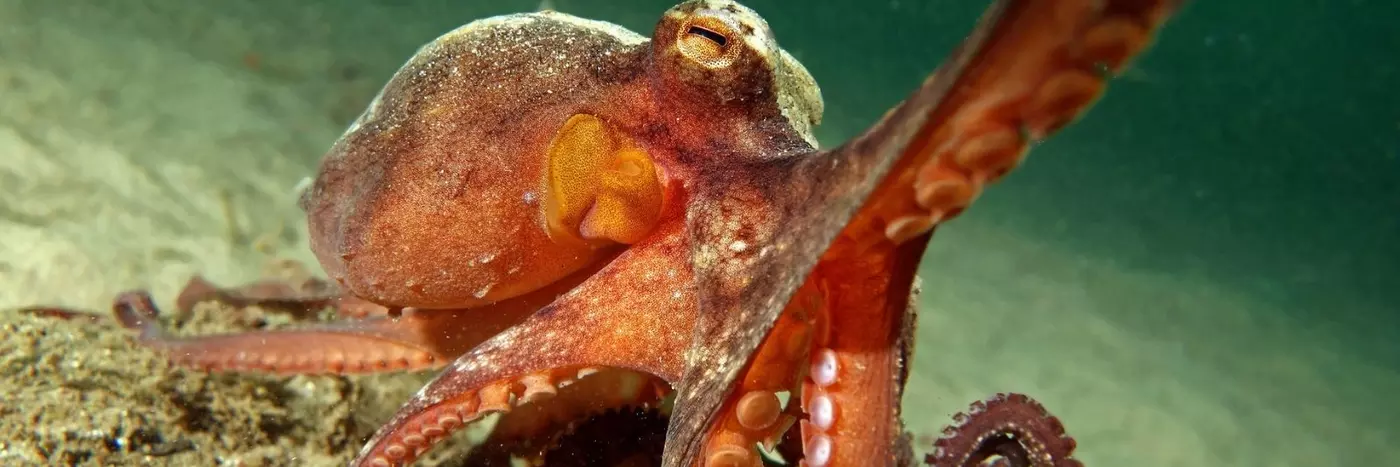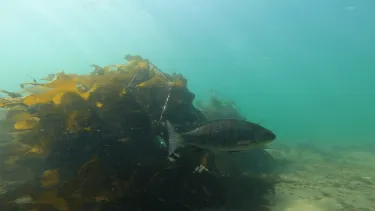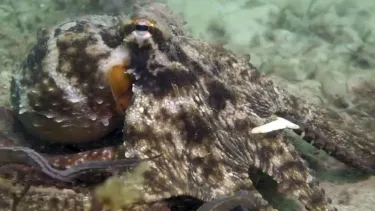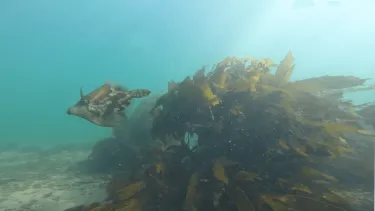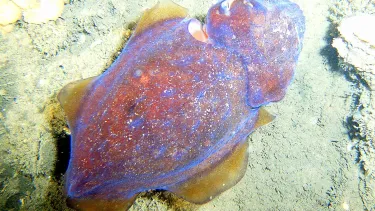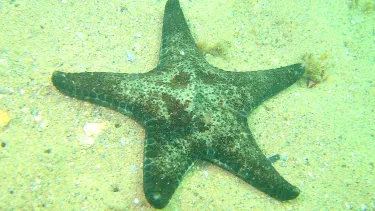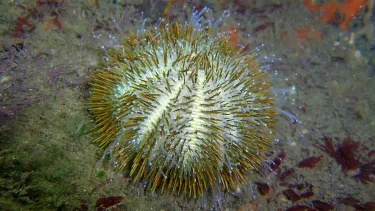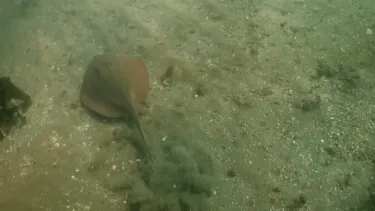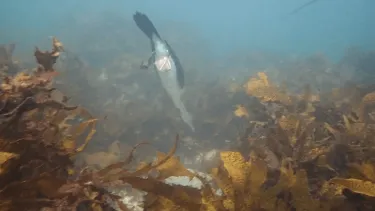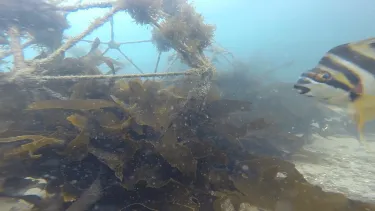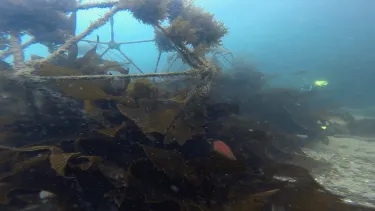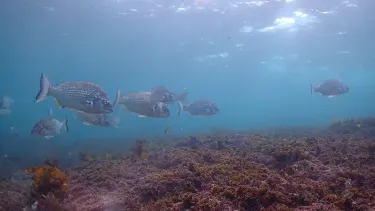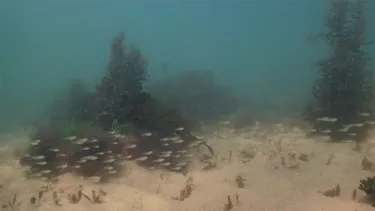An octopus’ garden underneath the Opera House
Discover the sea creatures that dwell beneath the harbour in our artificial reef along the Sydney Opera House sea wall.
It was a chilly July morning, but the grey skies weren’t reflected in the beaming grins of the two divers emerging from the water at Bennelong Point.
They’d just spotted a Gloomy Octopus. An exciting find for any diver in Sydney Harbour – but more so for these two researchers from University of Technology Sydney. In May 2019, they installed a modular artificial reef along the Sydney Opera House sea wall and had been tracking marine biodiversity in the area ever since.
Funded through a NSW Government Environment Trust Restoration and Rehabilitation grant, this research is part of a three-year project to restore marine habitats and rebalance biodiversity around Bennelong Point. Through the creation of little nooks and crevices where marine species can settle and reproduce, the artificial reefs aim to create new homes for a range of marine life.
In a little over a year, the reefs have already increased in species richness! (see photo gallery below). Encouraging results and just one of the ways that the Opera House is contributing to Goal 14 of the UN Global Goals – “Life Below Water”, which the Opera House committed to in 2019.
To learn more about the artificial reef project, educational resources including 3D and photogrammetry models are available here.
of
Tips for protecting marine life
- Use less disposable plastic which often ends up in our waterways.
- Join your local clean-up day.
- Eat sustainably sourced seafood.
- Help reduce the impacts of climate change on marine environments by reducing energy consumption through:
- Bike/ walk more and drive less;
- Conserving energy by switching off lights and appliances.
